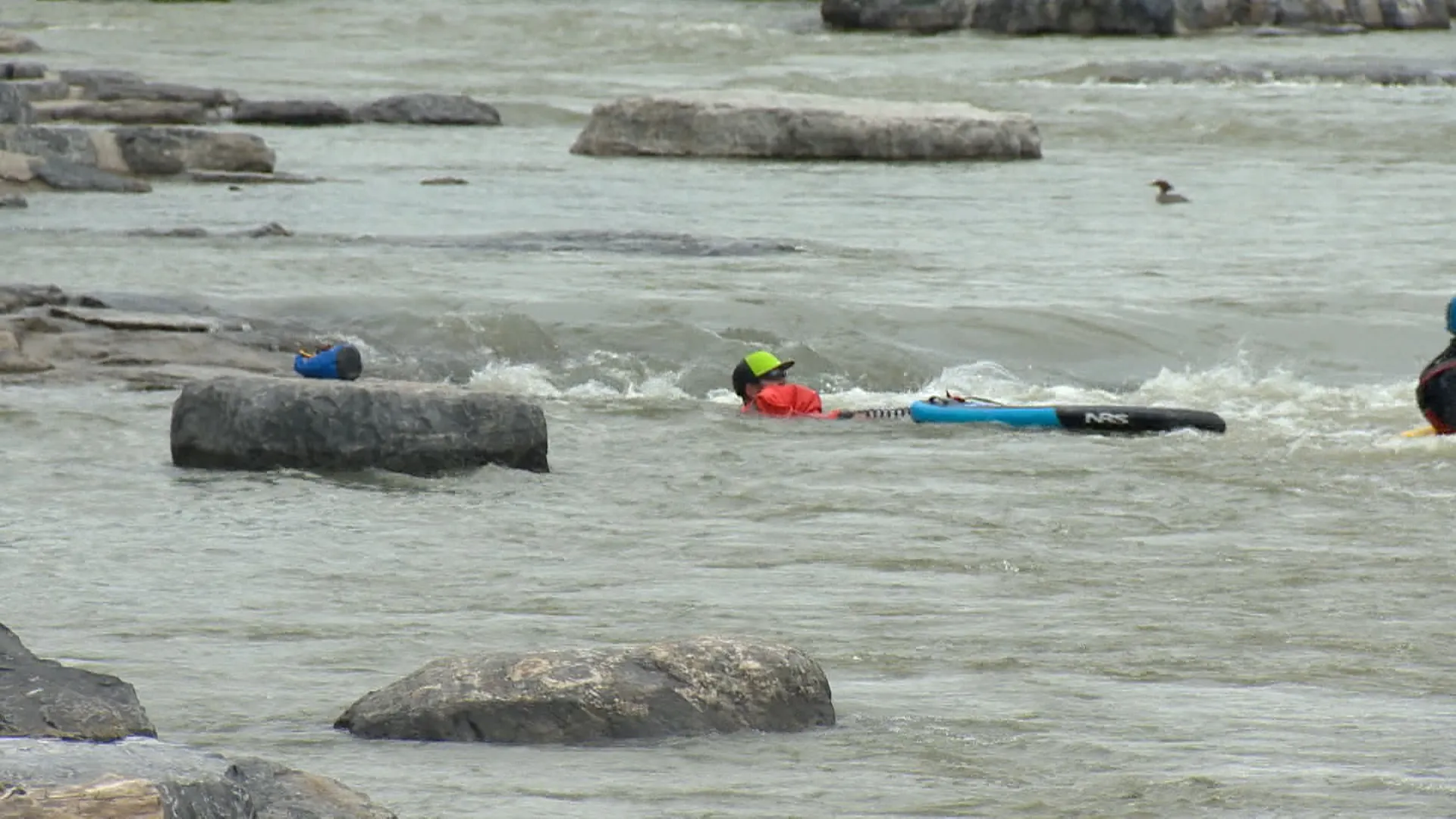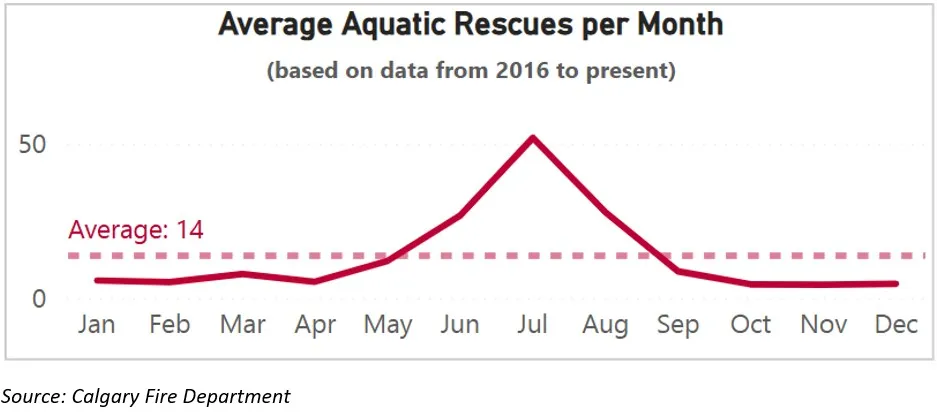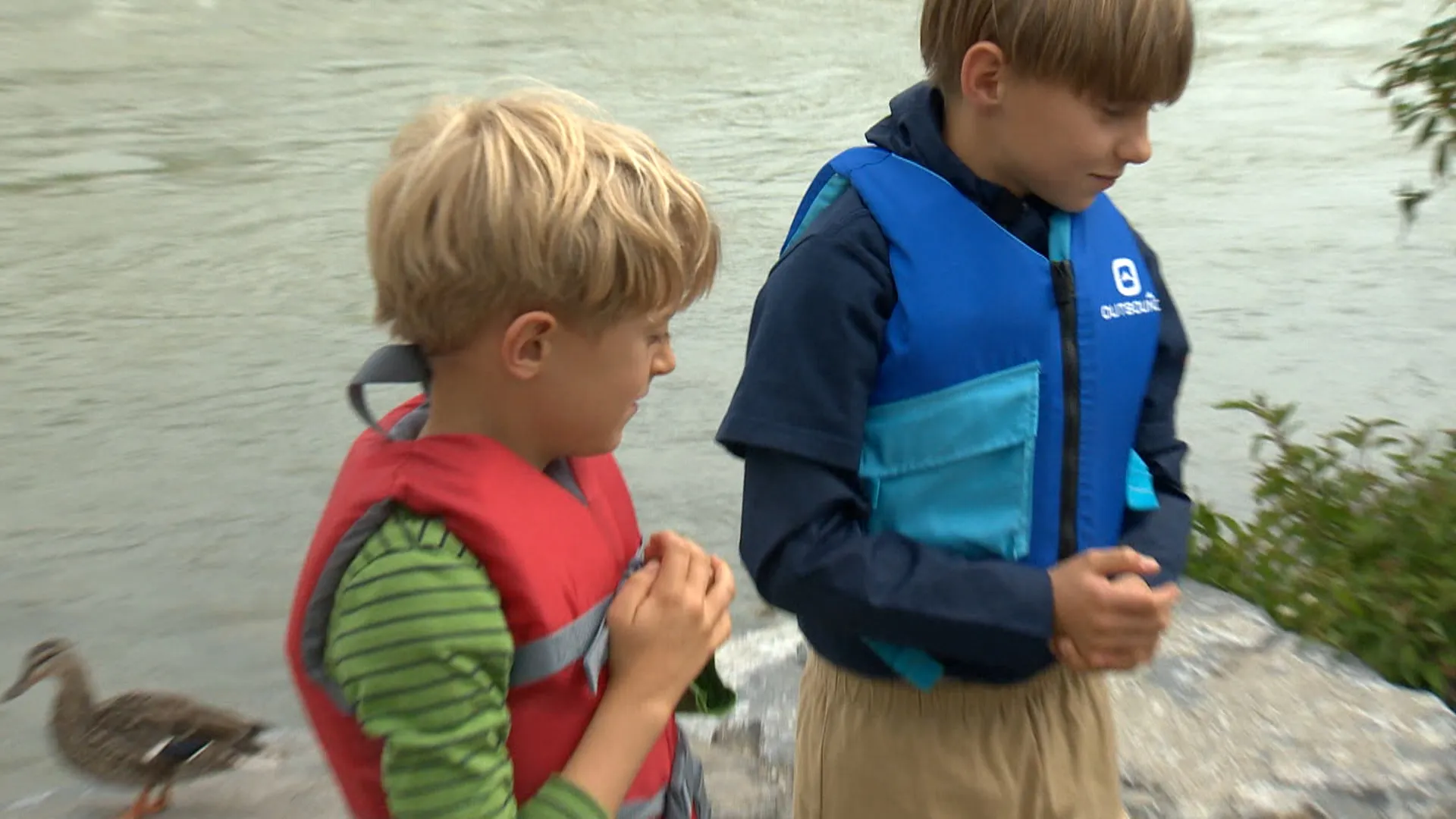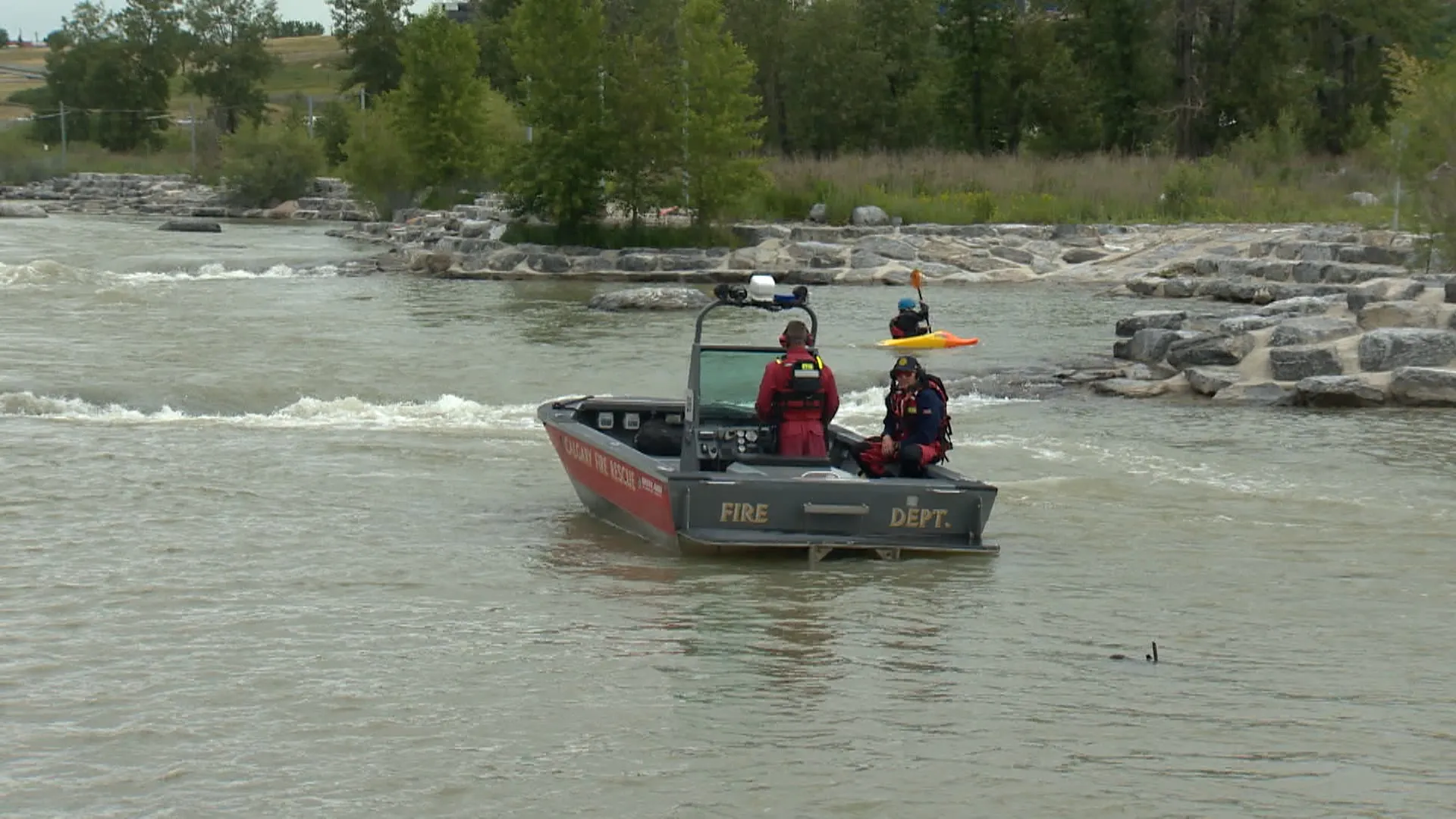Drowning claimed the lives of four people in Calgary last year, while the number of people who had to be rescued after getting into trouble on the waters in the city jumped by 31 per cent, according to the Calgary Fire Department.

Based on trends in river use and with a forecast for above-average temperatures this summer, the department is preparing for a possible all-time high in water rescues this summer, said Carol Henke, information officer with Calgary fire.
“The greatest number of water rescues occurred in July, averaging 52 rescues that month since 2016,” added Henke.
 View image in full screen
View image in full screen
“We see the greatest number of river rescues on the Bow River between Shouldice boat ramp downstream to Harvie Passage. The communities of Montgomery and Inglewood at either end of this float see the greatest number of aquatic rescues in the waters adjacent to their communities, especially at Harvey Passage.”
“Every time we see consistent temperatures like 28 to 30 C or higher, we’ve got a lot of people that I think venture out who haven’t been out to the water before,” said Calgary fire community safety officer, Alex Kwan.
 View image in full screen
View image in full screen
Including the four people who drowned last year, a total of 29 people have lost their lives in Calgary’s waters since 2016.
“The city’s growing, we have more people, and I think a lot of people maybe don’t think about the risks,” said Henke.
“It’s a beautiful day, you’re not thinking about something going wrong, you’re thinking it’s gonna be a nice little float down the river, and it’s not till you’re in the situation that you recognize maybe your planning could have been better, your craft could have been better. I think maybe it’s not top of mind for a lot of people.”
According to information from the RCMP and the Lifesaving Society of Canada’s National Drowning Report, close to 450 people drown every year in Canada and nearly 80 per cent of them are men, drowning at a rate four times higher than women.
More than 80 per cent of drownings while boating happen while the victim is not wearing a life jacket or personal flotation device.
Canada’s small vessel regulations require every boat, including kayaks and canoes, to have a Canadian-approved life jacket or PFD on board for each person.
Life jackets will not only help a person float should they end up in the water, but they’ll also help avoid shock and hypothermia, which can happen in water temperatures of 21 C or colder.
 View image in full screen
View image in full screen
Nearly 30 per cent of water-related deaths also involve alcohol — including 60 per cent of boating accidents.
“Those things end up being a recipe for a disaster, unfortunately,” said Insp. Kurt Jacobs of the Calgary police traffic section. “It impairs people’s judgment, and especially already when a quick incident arises.
“Under the gaming and liquor there are different fines stemming from a few hundred dollars and of course the most serious being under the Criminal Code with criminal charges just such as we would see on the roadways — they’re pretty stiff and I think most people don’t really realize that what applies to roads and drivers also apply to water.”
Henke said anyone heading out onto the water should also make sure their watercraft is safe.
“We often see floaties that are absolutely not indicated for a wilderness area in an urban setting — they puncture really easily and deflate, put you at risk for being stranded or worse, drowning.”
“Right now the stand-up paddle boardings have become more popular. Make sure people do not wear their ankle leashes,” said Kwan.
“In this environment, on the river with current, it becomes a drowning hazard. You can’t actually undo the ankle strap if you get pulled underwater. Don’t bring any of your (stand up paddleboard) anchors either. Any of those things can weigh you down, drag you down when they’re attached to the board and attached to you.”
 View image in full screen
View image in full screen
Calgary fire, police and community safety officers will be patrolling both the Bow and Elbow rivers this summer — both on the water and along the banks — including the popular launch sites, like West Baker Park, Shouldice Park and Sandy Beach.
With lots of sun and temperatures in the mid-20s forecast over the Canada Day weekend, they’re expecting to be busy.
“Our primary focus isn’t necessarily enforcement. It’s always safety, education. We just want to get that message out,” said Jacobs.
“We don’t want to see any tragedies. We’ve had enough in the past.”
Heart health is crucial for overall well-being. Learn how to keep your heart healthy with these simple lifestyle changes, expert tips, and the latest medical advancements.